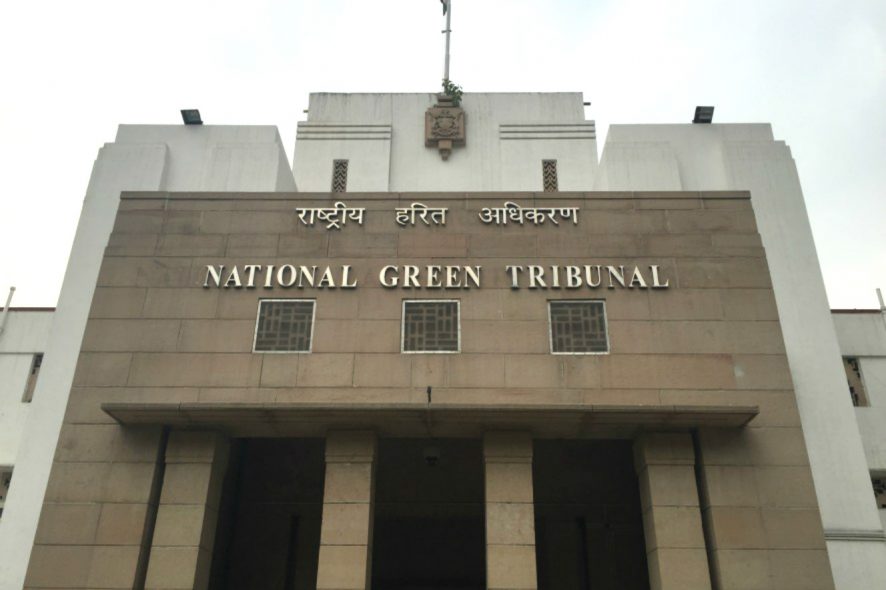National Green Tribunal (Central Zone Bench): While addressing the issue of pressure/air horns and motor vehicles being driven with intolerable sound in Rajasthan, the Bench comprising of Justice Sheo Kumar Singh (Judicial Member) and Dr. Arun Kumar Verma (Expert Member) found the State of Rajasthan in contempt of the Supreme Court’s order and issued notice to the state government to reply within three weeks.
The applicant had approached the Tribunal with a social cause pertaining to failure of the State to ensure effective implementation of laws related to noise pollution. To point out the deplorable state of affairs on the rampant noise pollution in the State which majorly emanates from vehicles either through incessant use of horns and modified exhausts, the applicants had submitted various State recorded data, environmental and motor laws and recent news reports before the Tribunal.
The applicant submitted that as per Rule 3(3) of Noise Pollution (Regulation and Control) Rules, 2000 formed under the Environment (Protection) Act, 1986, respective State Governments are responsible for abatement of noise radiating from vehicular exhausts and horns and to ensure that, Ambient Air Quality Standards, scheduled under the Rules are realized.
Further, the applicant contended, even otherwise State inaction on such crucial issue culminated to contempt of Court as there was non-compliance with the directions of the Supreme Court in Balwant Singh v. Commissioner of Police, (2015) 4 SCC 801, wherein while dealing with the issue of rampant and unchecked noise pollution in the State of Rajasthan, in particular with respect to State capital i.e., Jaipur, the Court had directed compliance of its earlier judgment in, Noise Pollution – Implementation of the Laws for restricting use of loudspeakers and high volume producing sound systems; In re, (2005) 5 SCC 733, wherein State Governments were directed to ensure the following:
- Limit noise sources to 10 dB(A) above the ambient noise standards for the area or 75 dB(A), whichever is lower; and
- Prohibit use of horn during night (between 10 p.m. and 6 a.m.) in residential areas except in exceptional circumstances; and
iii. Make provision for seizure and confiscation of any noise source creating noise beyond the permissible limits.
The issue had also been addressed by the National Green Tribunal (Principal Bench), in Hardeep Singh v. South Delhi Municipal Corpn., O.A. No. 519/2016 (P.B.), wherein directions were issued to Central Pollution Control Board (CPCB) to devise the scale of compensation on the basis of ‘Polluter Pays’ principle to curb the menace of noise pollution and ensure implementation of the mandate and spirit of Rules. Resultantly, the CPCB had issued a directive that in the event of violation of Rules, imposition of fine of Rs. 10,000/- and seizure of polluting source will be undertaken. Pertinently, a nationwide directive dated 27/04/2021 was also issued to all the State P.C.B. to implement and ensure compliance of ‘Scales of Compensation’ with immediate effect on receipt of the directive.
Relying on the fact that the direction on pan India level had already been issued by Principal Bench of NGT in Hardeep Singh’s case, the found the State in contempt and directed to comply and follow the guidelines issued by the Supreme Court, NGT (Principle Bench) as well as by the CPCB for monitoring and controlling the noise pollution. [Consumer Unity & Trust Society, Jaipur v. State of Rajasthan, Original Application No.79 of 2021, decided on 12-01-2022]
Kamini Sharma, Editorial Assistant has reported this brief.
Appearance by:
For the Applicants: Bhaskar Agarwal, Advocate with Tarun Agarwal, Advocate
For Respondent(s): Shoeb Hasan Khan, Advocate with Rohit Sharma, Advocate







